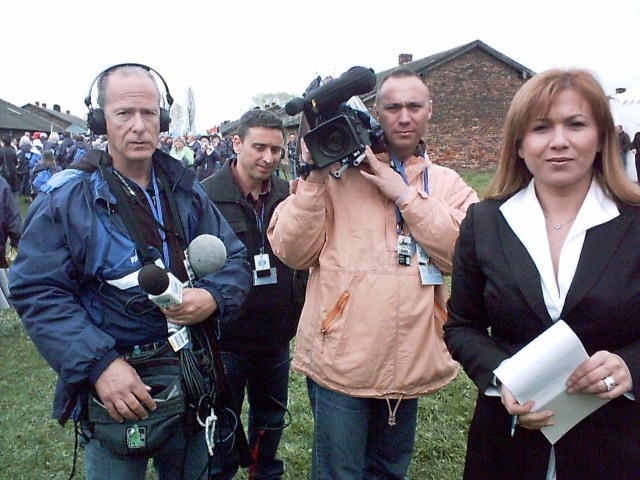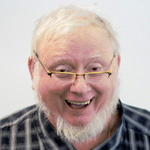
In Australia, there is now no mandatory 'retirement age'. This is an advantage for those who are enthusiastic and still active at maintaining their long-term job or profession, but it can be a problem for those who are getting tired and weary and let's face the fact not really benefiting their employer as much as their senior wage would indicate they should be.
Over the past 15 years or so, large (and some small) businesses as well as Universities and Government departments have offered 'voluntary redundancy' to people who would like early retirement, or are burnt out, or who would like to pursue family or hobby activities. This offer usually comes with a generous 'golden handshake' to allow the new retiree to gently ease himself or herself into the next phase of their life.
The company, business or department can fund these payments, either by downsizing if times are difficult, or by the simultaneous infusion of new blood when they employ younger, enthusiastic staff at a wage lower than that of the retiring senior person.
This has the double advantage of giving guaranteed permanent employment to those just starting out on their careers, with many years to give to the community.
"Burnout" has become particularly noticeable in the teaching profession. Not only is the average age of teachers is increasing; but at the same time it is becoming difficult for new graduates to obtain permanent positions in suitable schools. These are often 'targeted' gifted students.
To overcome these twin problems, teachers are now being offered this 'redundancy payment' or 'burnout bonus'. It has already been introduced in Queensland and Victoria, and in South Australia.

Earlier retirement
I personally feels that Christian ministers who have income mechanisms in place and are over 55, should be encouraged to take a form of early retirement. This frees up positions for younger men and women coming out of the Seminaries needing church positions. To illustrate this, Morling College (NSW Baptist) the largest Seminary in Australia, has on average sixty Ordinands graduating each year plus another 550 annual graduates who are wanting to serve somewhere in Ministry.
A scheme like this would allow those more experienced Ministers to get involved with areas of ministry they've been itching to get into for some time. This might be writing a book, writing articles, mentoring, doing interims in rural area, travelling to Missions overseas, or a whole range of community work that they may prefer to do on a part-time basis.
Reverend Dr Rowland Croucher, who has been specialising within this sphere for thirty years, says that there are more than 10,000 Australian ex-pastors out there (who left pastoral/parish ministry before retirement). Unfortunately, many have left in a context of conflict, and are disillusioned with Christian ministry in general.
Why is that? After 10,000+ hours counselling ex-pastors Dr. Croucher has recently made the following statement:
"The primary foundational cause is unresolved family-of-origin issues. A secondary but important factor is the constellation of unrealisable expectations parishioners place on their leaders. Just one example: if people watch 20 hours of television a week, the chief communicators in any other setting are going to be compared – favourably or unfavourably – to telegenic TV personalities. Most pastors/ preachers can't win."
There are many other variables as well listed in various articles on the John Mark Ministries website in the 'Ex-Pastors' section.

Experience
In my view, those Ministers over 55 who fall within this group that Dr Croucher speaks of, could benefit remarkably if their experience and wisdom could be regenerated into other ministry areas. The community would benefit as well. It is already functioning very successfully for Ministers with medical certificates whose finances are supported by the national health care system.
The issue is that many Christian ministers would love to retire (or partially retire) early in a similar manner. Many would particularly like to take on mentoring roles, but cannot for a lack of finance. The result is tired and frustrated Christian leaders who are not using their wisdom and skills effectively in mentoring their community; and Christian congregations left without effective leadership because of this 'burnout'.
On the other hand, they could benefit from a fresh graduate or recent returnee from the Mission field, who has more energy for rejuvenating the Church's activities and worship.
This is an area that denominational leaders are beginning to look at, some are considering a small levy placed upon local churches (the Parishes) which would off-set such considerations. And there may be other mechanisms being considered to raise such finances so as to allow rejuvenation.

 Dr Mark Tronson is a Baptist minister (retired) who served as the Australian cricket team chaplain for 17 years (2000 ret) and established Life After Cricket in 2001. He was recognised by the Olympic Ministry Medal in 2009 presented by Carl Lewis Olympian of the Century. He mentors young writers and has written 24 books, and enjoys writing. He is married to Delma, with four adult children and grand-children. Dr Tronson writes a daily article for Christian Today Australia (since 2008) and in November 2016 established Christian Today New Zealand.
Dr Mark Tronson is a Baptist minister (retired) who served as the Australian cricket team chaplain for 17 years (2000 ret) and established Life After Cricket in 2001. He was recognised by the Olympic Ministry Medal in 2009 presented by Carl Lewis Olympian of the Century. He mentors young writers and has written 24 books, and enjoys writing. He is married to Delma, with four adult children and grand-children. Dr Tronson writes a daily article for Christian Today Australia (since 2008) and in November 2016 established Christian Today New Zealand.
Mark Tronson's archive of articles can be viewed at http://www.pressserviceinternational.org/mark-tronson.html

Dr Mark Tronson - a 4 min video
Chairman – Well-Being Australia
Baptist Minister 45 years
- 1984 - Australian cricket team chaplain 17 years (Ret)
- 2001 - Life After Cricket (18 years Ret)
- 2009 - Olympic Ministry Medal – presented by Carl Lewis
- 2019 - The Gutenberg - (ARPA Christian Media premier award)
Gutenberg video - 2min 14sec
Married to Delma for 45 years with 4 children and 6 grand children